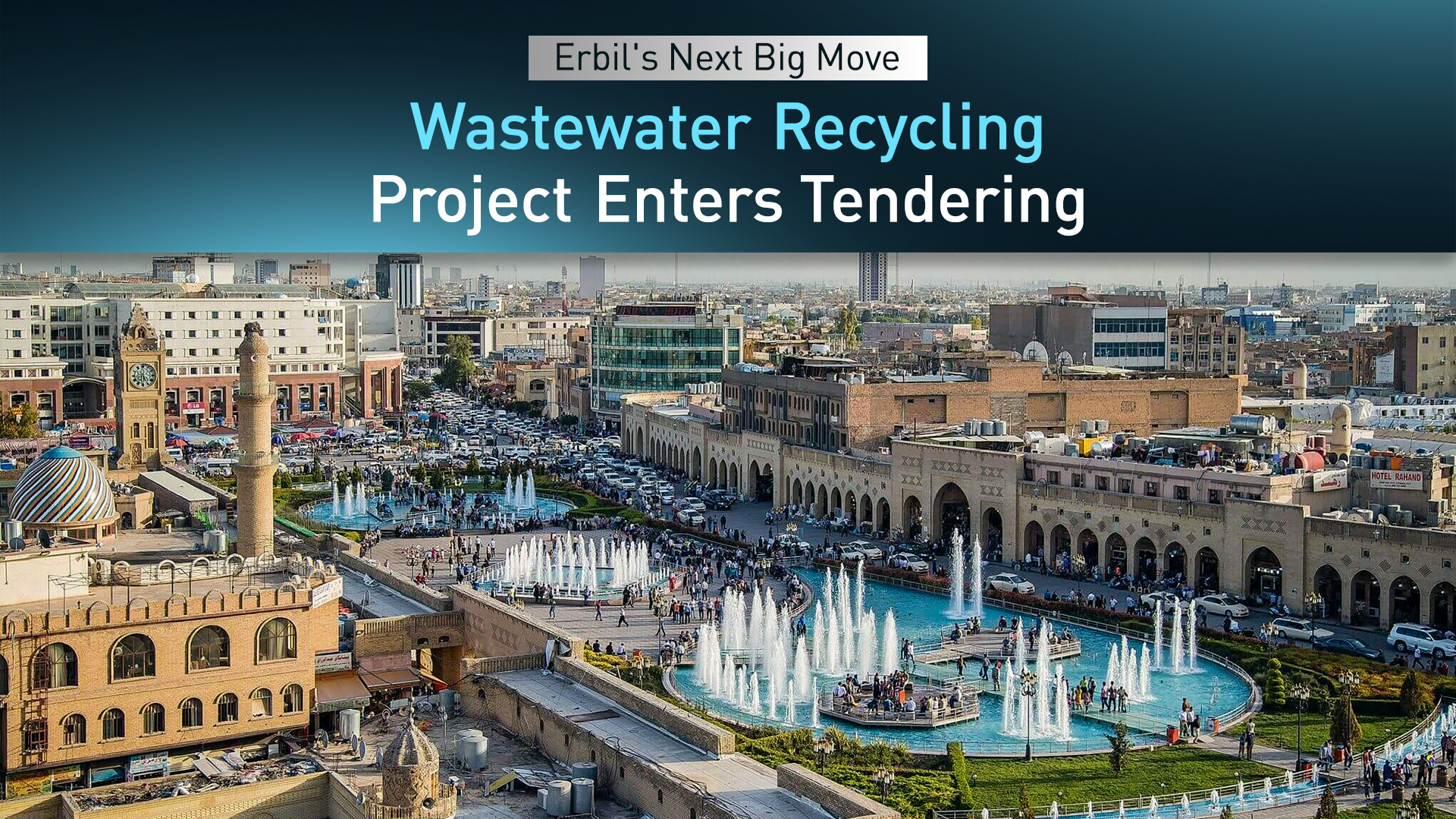Erbil Water Strategy Expands with $200M Recycling Plant Funded by Japan
Following the launch of Erbil's new water supply project, the KRG announces a $200M wastewater recycling plant is now in tendering. The project, funded by a Japanese loan, will irrigate green spaces and reflects a comprehensive water management strategy.

By Kamaran Aziz
ERBIL (Kurdistan 24) – Following the landmark inauguration of a massive new water supply system for Erbil, the Kurdistan Regional Government is already moving to the next phase of its comprehensive water management strategy, with the Director-General of Water and Sewage announcing that a major wastewater recycling project for the capital is now in the tendering process and will begin in the near future.
The announcement came on Sunday, on the same day that KRG Prime Minister Masrour Barzani officially launched the first phase of the Erbil Emergency Rapid Water Supply Project. During his inauguration speech, the Prime Minister had already alluded to the government's forward planning, revealing "there are plans to establish a system for recycling and reusing the water in the future due to the increased volume of wastewater in the city of Erbil."
Providing concrete details on the Prime Minister’s statement, Engineer Ari Ahmed Qadir, the Director-General of Water and Sewage of the Kurdistan Region, confirmed to Kurdistan24 that the plan is now actively moving forward.
"The tendering process for the Erbil wastewater recycling project will be completed in the coming days, and it will then begin," Qadir announced.
He elaborated on the specifics of the ambitious environmental project: "Rainwater, along with wastewater, will be recycled in a project to a standard that is safe for consumption. The planned project will be implemented with a $200 million loan from Japan." Its primary purpose, he explained, will be to "recycle Erbil's wastewater for irrigating the green spaces and gardens of Erbil."
This next-generation project is a direct consequence of the success of the new water supply system, which Qadir hailed as a cornerstone for the city's future.
"The Emergency Rapid Water Supply Project for the city of Erbil strengthens Erbil's economic infrastructure, because the project has the capacity to treat 480,000 cubic meters of water per day according to international standards, implemented at a cost of 480 million dollars," he said.
The Director-General also highlighted the remarkable efficiency of its implementation. "The project was scheduled to be completed in 550 days, but it was finished in just one year," he stated. "It began on July 20, 2024, and today, July 20, 2025, it was completed, and the first phase was inaugurated."
The immediate impact of the new water supply project is already significant. According to Qadir, the project in its current first phase "resolves 65% of Erbil's water problem, covering approximately 30 neighborhoods, including Bnaslawa, Daratu, and Kasnazan." He confirmed that "by the end of the year, the entire project will be in service to the citizens, and water will reach all of Erbil."
A key environmental benefit of the new system is the conservation of the capital’s vital groundwater. Qadir revealed that the process of decommissioning water wells, which had been over-exploited for years, is well underway. In the first phase alone, "186 water wells have been shut down in the neighborhoods that the project has reached," he said. "By the end of this month, we will shut down 300 wells... With the completion of the project, the plan is to shut down one thousand wells in Erbil."
The move to a wastewater recycling plant demonstrates a two-pronged strategy: first, to provide a secure and abundant water supply, and second, to manage the downstream effects in an environmentally sustainable way, turning wastewater into a valuable resource for maintaining the city's green landscape.